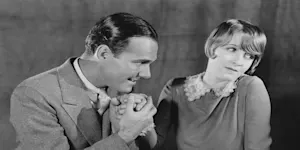What Makes This Word Tick
"Fipple" is quite an esoteric word. It's the part of a woodwind instrument that directs air into the body of the instrument, thus producing sound. Think of it as the wind instrument's lips, whispering melodies from flutes and recorders into the world.
If Fipple Were a Person…
Fipple would be that quirky yet reliable friend who can always get a tune out of any situation. They'd likely be an aficionado of folk music, with a knack for crafting their own recorder tunes just as effortlessly as they blend into a crowd with a sassy charm.
How This Word Has Changed Over Time
While fipple hasn't undergone significant semantic transformation, its application and significance have certainly expanded. As musical tastes diversified, so did the variety of instruments using a fipple, maintaining its niche yet crucial role in instrument design.
Old Sayings and Proverbs That Use Fipple
There are no ancient proverbs featuring "fipple." However, if there were, they might humorously suggest that "A well-tuned fipple makes the heart sing," emphasizing the joy music brings.
Surprising Facts About Fipple
It's surprising how integral a fipple is in producing sound, yet many casual musicians might not even know the term. Without a fipple, wind instruments like recorders and some flutes could lose their voice, akin to a singer without vocal cords.
Out and About With This Word
You'd most likely encounter "fipple" in music shops, during recorder lessons, or at gatherings of dedicated folk or baroque musicians keen on discussing the nuances of their instruments.
Pop Culture Moments Where Fipple Was Used
Fipple rarely graces the stage of popular culture. However, it silently steals the show in music education classrooms and orchestras where recorders are learning tools for budding musicians.
The Word in Literature
Fipple isn't a word that often pops up in novels or poetry. But, its spirit might be found in detailed musicological texts, diagram-centric guides on how various instruments work, or enchanting biographies of famous flute makers.
Moments in History with Fipple
Picture the Baroque era: ornate salons, powdered wigs, and sweet melodies echoing from handheld recorders. Each gentle trill from those little instruments relied on a perfectly crafted fipple, ensuring that the music of the time lived on.
This Word Around the World
The concept of the fipple isn’t universally named. While in English it’s "fipple," other languages might describe the same part differently and uniquely as part of their traditional instruments.
Where Does It Come From?
The origin of "fipple" is a bit foggy. It seems to link back to ideas of mouthpieces or similar components integral to sound production in wind instruments, hinting at its role and construction.
How People Misuse This Word
Some might incorrectly use "fipple" to describe any part of a wind instrument. However, it specifically refers to the block that enables sound in certain woodwind apparatuses, not just any mouthpiece or structure.
Words It’s Often Confused With
Mouthpiece: While a fipple is part of the mouthpiece assembly, they are not synonymous.
Embouchure: This refers to the musician's mouth position, not a physical part of the instrument.
Additional Synonyms and Antonyms
Fipple doesn’t have direct synonyms or antonyms. It's a specialized music term without a vast lexical family.
Want to Try It Out in a Sentence?
"Learning to play the recorder became much easier once I understood the role of the fipple in producing crisp, clear notes."
















